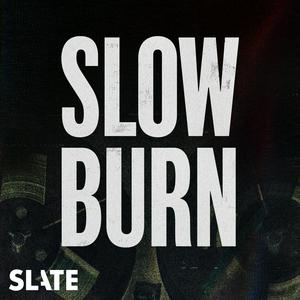The infamous annual ritual of spring break—where thousands of college students head to the same warm location and go crazy—can seem like it’s always been here. But it hasn’t. The spring break phenomenon is a holdover from midcentury teen culture that has endured by changing, just enough, to be passed from one generation to the next. In this episode we’re going from the beaches of Fort Lauderdale to Daytona, from the movie screen to the TV set, from MTV to Instagram reels, from its start to its surprisingly recognizable present, as we follow the evolving, self-reinforcing rite that is spring break.
You’ll hear from former MTV staffers Doug Herzog, Salli Frattini, Alan Hunter, and Joe Davola, along with John Laurie, Kaylee Morris, and Slate writer Scaachi Koul.
This episode was written by Willa Paskin and Katie Shepherd and produced by Katie. It was edited by Evan Chung, Decoder Ring’s supervising producer. Our show is also produced by Max Freedman. Merritt Jacob is Senior Technical Director.
Thank you to Bob Friedman and Allan Cohen, producers of Spring Broke; David Cohn, Derreck Johnson, and Ivylise Simones.
If you have any cultural mysteries you want us to decode, please email us at
[email protected], or leave a message on our hotline at 347-460-7281.
Want more Decoder Ring? Subscribe to Slate Plus to unlock exclusive bonus episodes. Plus, you’ll access ad-free listening across all your favorite Slate podcasts. Subscribe now on Apple Podcasts by clicking “Try Free” at the top of the Decoder Ring show page. Or, visit slate.com/decoderplus to get access wherever you listen.
Sources for This Episode
Koul, Scaachi. “From ‘Girls Gone Wild’ to ‘Your Body, My Choice’,” Slate, Dec. 13, 2024.
Laurie, John. “Spring Break: The Economic, Socio-Cultural and Public Governance Impacts of College Students on Spring Break Host Locations,” University of New Orleans Dissertation, Dec. 19, 2008.
Mormino, Gary R. Land of Sunshine, State of Dreams: A Social History of Modern Florida, University Press of Florida, 2008.
Schiltz, James. “Time to Grow Up: The Rise and Fall of Spring Break in Fort Lauderdale,” The Florida Historical Quarterly, Fall 2014.
Spring Broke, dir. Alison Ellwood, Bungalow Media + Entertainment, 2016.
Thompson, Derek. “2,000 Years of Partying: The Brief History and Economics of Spring Break,” The Atlantic, March 26, 2013.
Learn more about your ad choices. Visit megaphone.fm/adchoices
